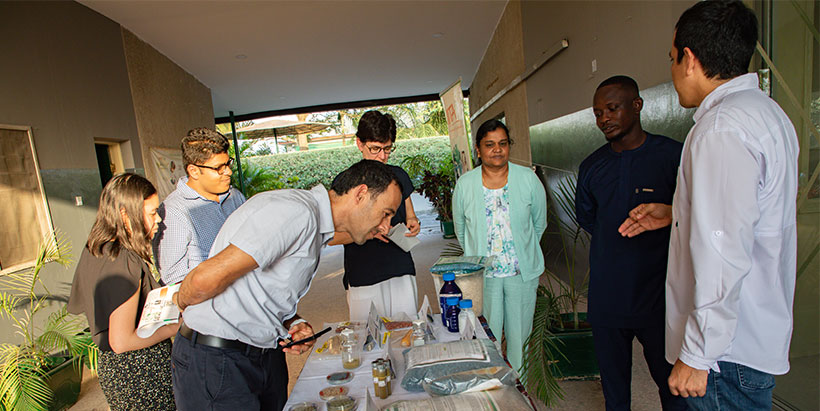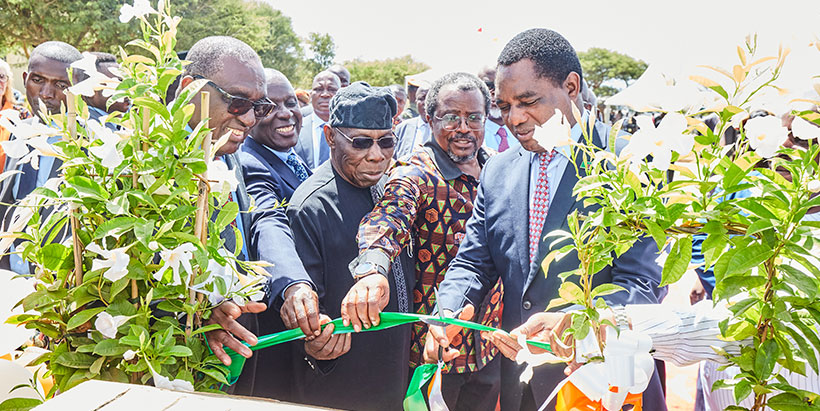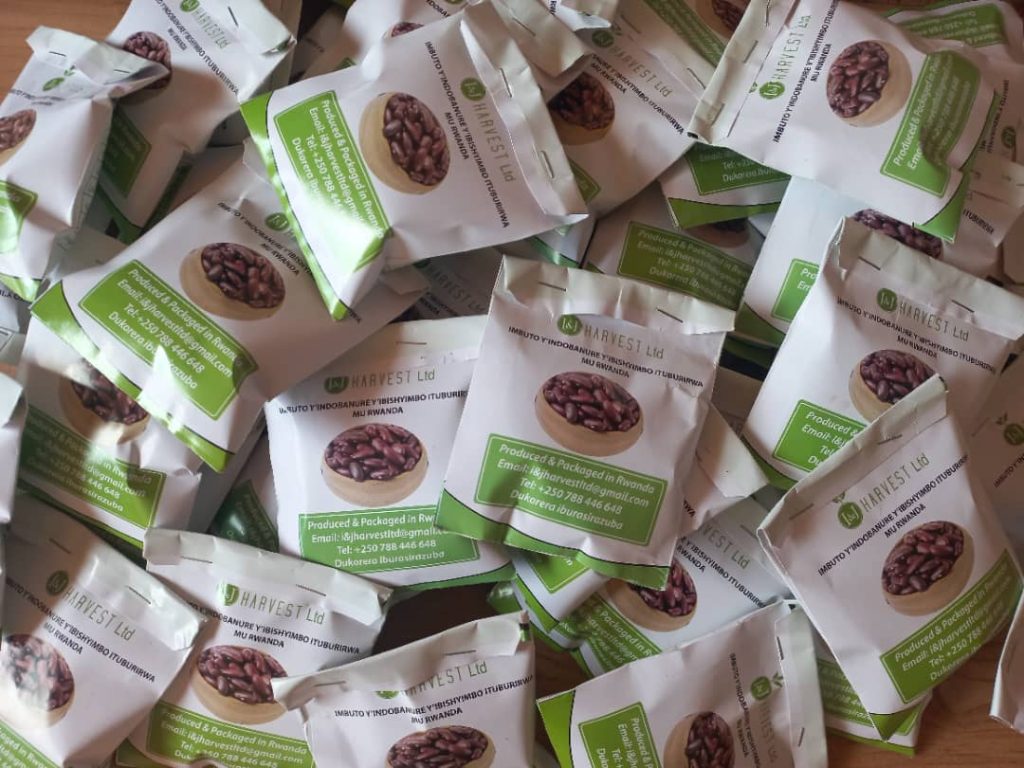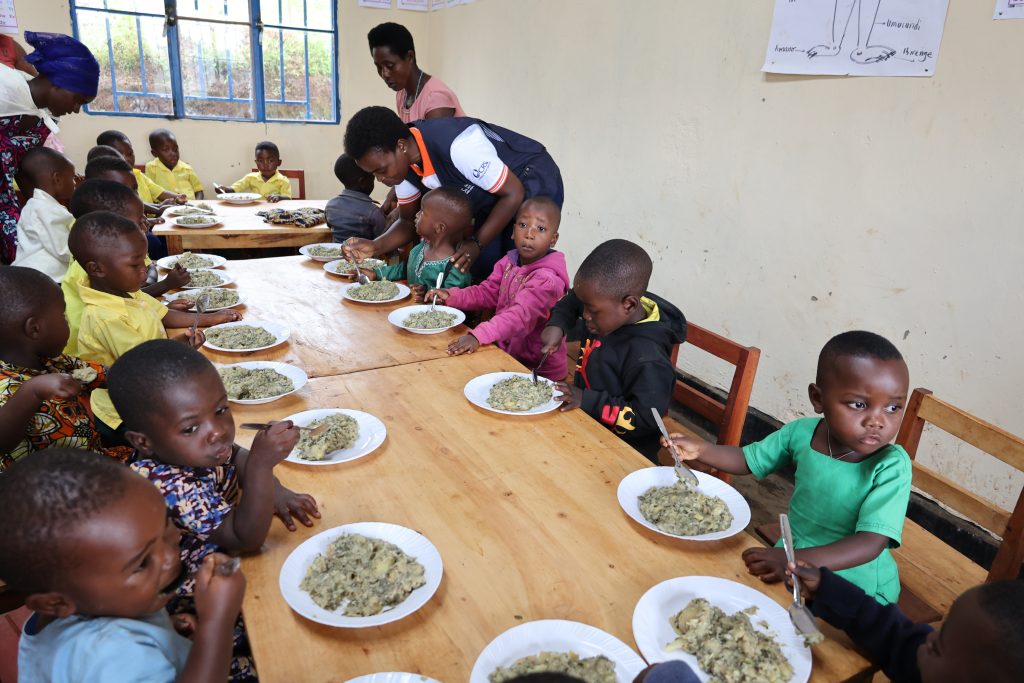IITA partners with global leaders to deliver soil health and productivity solutions to Africa’s farms
Millions of smallholder farmers across Africa are about to get a helping hand from the tiniest of allies: microbes.

The BioSSA visits the IITA Aflasafe unit.
The International Institute of Tropical Agriculture (IITA) recently announced the launch of a groundbreaking project titled “Making effective bio-inputs work for smallholder farmers in sub-Saharan Africa” (BioSSA). The project, funded by the Bill & Melinda Gates Foundation, is aimed at empowering smallholder farmers in sub-Saharan Africa with innovative bio-inputs. This groundbreaking strategic collaboration is a first in Africa and is poised to accelerate progress, ensuring the successful development and deployment of bio-input innovations that will positively impact smallholder farmers across Africa.
According to Bernard Vanlauwe, IITA Deputy Director General, Research for Development, “BioSSA represents a critical step towards empowering African smallholder farmers with innovative tools to enhance their productivity and resilience in the face of climate change. By harnessing the power of bio-inputs, we can unlock the potential of African agriculture, empower millions of farmers, boost food production, and build a more resilient future for the continent.”
The project’s initial phase will focus on collecting evidence to assess the effectiveness of candidate microbial strains. Over the subsequent stages, the project will strategically shift its focus towards identifying deployment pathways, culminating in the development of innovative bio-input products.
The project strategically targets two pivotal crop categories: grain legumes comprising soybean, cowpea, and Phaseolus bean; and the cluster of roots, tubers, and bananas, including cassava, yam, and banana/plantain. These crops underpin food security and serve as critical sources of income generation for millions of smallholder farmers across the African continent. Leveraging the extensive expertise and established breeding programs at IITA for these crops, BioSSA is poised on a solid foundation, setting the stage for substantial success in agricultural transformation.

The IITA team and the BioSSA team at the IITA headquarters in Ibadan.
African smallholder farmers face many challenges, including degraded land, unpredictable weather patterns, and resource constraints. These factors contribute to low-input agriculture, characterized by limited fertilizer use and poor yields. Nitrogen (N) and phosphorus (P) deficiencies are widespread across the region, further hampering agricultural productivity and food security. The goal is to unleash the potential of bio-inputs—microbial-based products that improve soil health, increase nutrient availability, enhance crop yields, boost farmer incomes, and improve the efficiency, productivity, and profitability of African smallholder farming systems in the face of a changing climate.
In response to concerns about the cost and environmental impact of traditional fertilizers, BioSSA focuses on microbial inoculants as a promising alternative. The project adopts a stage-gated approach, with initial testing and validation of microbial strains in sub-Saharan African conditions. The subsequent focus will shift to product development and exploring effective deployment pathways to benefit the fields where innovation is most needed.

The IITA team and the BioSSA team at the IITA headquarters in Ibadan.
BioSSA’s key outcomes include identifying and validating microbial strains, understanding bio-input science, developing user-friendly and affordable products, and building partnerships and capacity. This comprehensive approach seeks to create a sustainable bio-input ecosystem in Africa, prioritizing the needs of smallholder farmers and driving positive transformation in agricultural practices.
“Investing in bio-inputs holds immense potential to improve food security and livelihoods for millions of smallholder farmers in Africa. BioSSA’s focus on evidence-based development and farmer-centric solutions aligns perfectly with our commitment to driving sustainable agricultural transformation,” concluded Vanlauwe.
Facilitated by IITA through a dynamic public-private partnership (PPP), the project is designed to boost productivity and enhance resilience in response to climate change. BioSSA, implemented through this collaborative model and with esteemed partners such as Adaptive Symbiotic Technologies (US), Aphea.Bio (Belgium), Azotic Technologies (Canada), Embrapa (Brazil), Groundwork BioAg (Israel), Switch Bioworks(US), and UCLouvain (Belgium), is positioned to accelerate progress and bring positive impacts to smallholder farmers across Africa.
About IITA (IITA.org)
The International Institute of Tropical Agriculture (IITA) is a not-for-profit institution that generates agricultural innovations to meet Africa’s most pressing challenges of hunger, malnutrition, poverty, and natural resource degradation. Working with various partners across sub-Saharan Africa, we improve livelihoods, enhance food and nutrition security, increase employment, and preserve natural resource integrity. IITA is a member of CGIAR, a global agriculture research partnership for a food secure future.
Contributor(s)
Bernard Vanlauwe, B.Vanlauwe@cgiar.org
Related stories
Next read


